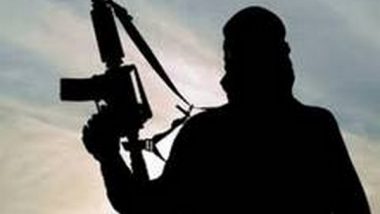Islamabad, March 11: In a significant development, the United States and its main Western allies have recognised the Tehreek-e-Taliban Pakistan (TTP) as a serious threat to both their own security and that of Pakistan, reported The Express Tribune.
Several Western countries supported Islamabad's assertion that the outlawed terrorist organisation was conducting operations from Afghanistan during a meeting of what appears to be a newly established group on Afghanistan last month in Paris. Tehreek-E-Taliban Pakistan Issues Death Threats to PM Shehbaz Sharif, Other Top Leaders for 'Announcing War Against Outfit To Please America'.
To discuss the Afghan situation, a meeting of special envoys and representatives for Afghanistan from Australia, Canada, the European Union, France, Germany, Italy, Norway, Switzerland, the United Kingdom, and the United States took place in Paris on February 20.
A report published in The Express Tribune read, the meeting was kept secret for more than two weeks before the US State Department on Tuesday released a joint statement that expressed deep concerns about the actions of terrorist organisations, particularly the TTP, in Afghanistan. Also Read | Bilawal Bhutto Zardari Admits Pakistan Unable To Get Kashmir Attention at UN.
The fact that the meeting took place on the eve of the first anniversary of the start of the war in Ukraine revealed that, despite the West's possible preoccupation with the fight in their own backyard, Afghanistan had not been forgotten.
The significant thing that the joint statement highlights was the fact that the US and its Western allies expressed serious worries about the growing threat posed by terrorist organisations in Afghanistan, including the Islamic State-Khorasan Province (ISKP), Al Qaeda, TTP, and others.
The joint statement made a significant point by stating that these organisations, including TTP, "seriously harm security and stability inside the country, in the region, and beyond," and it urged the Taliban to maintain Afghanistan's duty to deny these organisations safe refuge.
This was the first time a Western bloc specifically referred to TTP as a security danger, something Pakistan would have appreciated. These strong Western nations, which made up the backbone of the American alliance following the 9/11 attacks, showed a resurgence of interest, indicating that they were growing more concerned about the situation in Afghanistan.
This was also reflected in their joint statement, which expressed "grave concern" over the growing threat to Afghanistan's security and stability as well as the worsening of the humanitarian and economic situations, with more than 28 million Afghans now in need of aid, more than half of whom were women and children, and six million only a few steps away from famine.
They emphasised their worry over the Taliban's escalating deterioration and numerous breaches of Afghans' fundamental rights and freedoms since August 2021, particularly those of women and girls, members of racial and religious minorities, and other disadvantaged groups.
They fiercely denounced the Taliban's decisions to prohibit Afghan women from attending universities and working for Non-Governmental Organisations (NOGs) in December 2022.
They emphasised that these actions violate and endanger not just the rights and freedoms of Afghan women, but also the country's overall, urgently needed social and economic development, which would suffer significantly if half the population was prevented from actively participating.
According to The Express Tribune, they stressed that if restricted by discriminatory rules or practises, humanitarian assistance could not be provided equitably or effectively. They demanded that these unjustified restrictions be immediately lifted because they made it impossible for the most vulnerable Afghans to receive humanitarian aid.
They emphasised that the Taliban's key concerns should be the country's recovery, an improvement in the economic situation, and meeting the needs of the Afghan people while also recalling the Taliban's role for the deterioration of the economic and humanitarian situation.
They emphasised the need for an authentic and broad national discourse that would result in a constitutional order with a representative and inclusive political system in order to achieve peace and stability in Afghanistan.
They declared that members of the international community should maintain and strengthen their coordination in light of upcoming developments in Afghanistan and with the interest of the Afghan people in mind, and that the situation and developments in Afghanistan should be continuously monitored with the utmost vigilance.
The special envoys and representatives decided to get together once again soon, The Express Tribune reported.
(This is an unedited and auto-generated story from Syndicated News feed, LatestLY Staff may not have modified or edited the content body)













 Quickly
Quickly




















